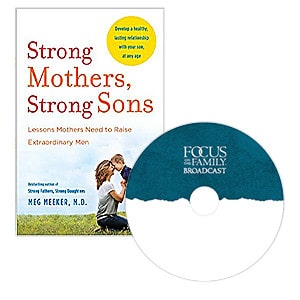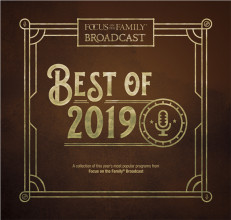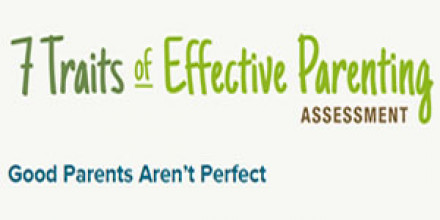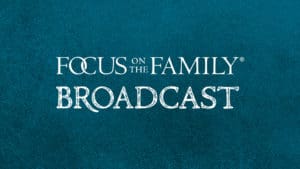Teaser:
Dr. Meg Meeker: So, we’re the ones who teach our young boys that women can be relied upon, that women can be nurturers, that women are compassionate, and we will be there for people. We are the comfort.
End of Teaser
John Fuller: Dr. Meg Meeker is our guest today on Focus on the Family talking about being a great mom to your son.
And your host is Focus president and author Jim Daly. I’m John Fuller, and the conversation you’re about to hear was one of the most responded to, most popular Focus on the Family programs from 2019. And here’s how Jim began…
Jim Daly: John, here’s a newsflash. Numerous studies have shown that when a boy has a secure attachment to his mom, he is psychologically healthier, stronger and even braver. Isn’t that interesting?
John: It is. Yeah.
Jim: You would think that’d be connected to dad. But it goes on to say he will have higher self-esteem, do better in school and have lower rates of mental and behavioral disorder. So, moms, do you think you play an important role in your son’s life? I think the answer’s a resounding absolutely yes.
And we’re going to talk about that today. You know, God’s word also backs up what we’re seeing in secular research. Isn’t that amazing? Your son needs you. And you can raise a godly son.
Let’s look at the scripture in Proverbs 31:28. Her children rise up and call her blessed, her husband also. And he praises her. That’s when you know you have a home that’s in-sync with scripture and even, you know, lining up against secular research.
Here at Focus, we want to be there for you at every age and stage. That’s why we cover topics like this to help you be the mom you want to be, the dad you want to be and help you to do well in your marriage, your parenting and in every way.
John: And Dr. Meg Meeker has been practicing pediatrics and adolescent medicine for over 30 years. She’s quite a prolific author and speaker and the mom of four adult children. We’re going to be really dialing into her book, Strong Mothers, Strong Sons: Lessons Mothers Need to Raise Extraordinary Men. And, of course, we’ve got that at our website, focusonthefamily.com/broadcast
Jim: Meg, welcome back to Focus (laughter).
Meg: Oh, thanks for having me.
Jim: It’s always good to have you here.
Meg: It is. I love being here.
Jim: Your perspective – I mean, it is steeped in experience – that 30 years of being a pediatrician– thousands of patients!
Meg: You know, it is. And I feel so blessed that, at this stage in my career, I still love what I do.
Jim: Yeah. And that is so good. And you think of all those stories that – even in your book, Strong Mothers, Strong Sons, you rely a lot on those stories. I know you protect your patient’s identity and changed the names and all that – but so many rich stories in there, both, you know, tough stuff and good stuff that you capture. The best part of it, though, is you have a son as well. So, it’s not just theoretical. You had to raise your son – you and your husband.
Meg: Yes.
Jim: And you mixed some of that into your book, too…
Meg: I do…
Jim: …So it’s the real-world experience.
Meg: Much to his chagrin.
(LAUGHTER)
Meg: My kids are always like, “Mom, we’re not going in a book.”
Jim: Have you negotiated that (laughter)?
Meg: Yeah. Well, you know, it is very interesting, because we did have three daughters. And then our son came along, and it was such a very different experience for me as a mother. And of course…
Jim: Describe some of that.
Meg: Well, first of all, I’ll never forget the day I was sitting in the living room, and he’s 4 years old playing with a friend. And I was sitting on the couch doing something. All of a sudden, this – these two things came behind the couch over me and onto the floor.
Jim: (Laughter).
Meg: And I thought what just happened? You know, we do crafts in our home.
(LAUGHTER)
Meg: We paint.
Jim: You sit.
Meg: And we color, and we do things. And so, he was very rambunctious. And his relationship with me was very different. You know, he was very affectionate early on. And then he kind of moved away and gravitated more towards my husband. And, of course, that hurt my feelings terribly.
Jim: Did you think you were a failure, or what was…?
Meg: I did. I thought, you know, he doesn’t love me as much anymore. He doesn’t want to be with me as much anymore. What happened to my lovely son, who used to love to go to the grocery store with me?
Jim: Cling to you (laughter).
Meg: Yeah. And then as he, you know, hit middle school, he just sort of didn’t want that anymore. And I didn’t quite understand, because our girls never did that.
Jim: (Laughter).
Meg: Our girls never pulled away. We talked about everything all the time, no matter what. And then particularly during the teen years, that was a real challenge for me. And I realized how critical it was to understand what he was going through, and what he needed from me.
Jim: Yeah. And it’s so true. You know, I’ve read some stories just recently that have come out, talking about the boy crisis. You mention that in your book. And this was a while ago that you wrote the book. But that boy crisis, especially for now, they talk about how girls are being lifted up, encouraged to go after their goals, to do well in school, to go to postgrad school, to be all they can be. I mean, you’re a doctor. You did it, too. And that’s all healthy and good, and that’s wonderful. But, at the same time, the article talked about how boys have been left behind. What’s your observation of the boy crisis, both what you wrote about six years ago in your book, and then what you see today?
Meg: You know, it’s absolutely true. And what I’ve seen is – I’ve seen the feminism movement, ’cause I went to an all-women’s college in the ’70s. So, I saw it begin to grow. And I think we started to put a lot of emphasis on women and women’s rights and helping women and getting money to women. And it grew and grew and grew. And whenever you have a revolution that is that strong and that – and changes a culture, there are casualties.
Jim: Yeah.
Meg: And the casualties here were men and boys, because men and boys didn’t know where they fit, didn’t know what to do, felt women competing with them. And let’s make no mistake. When a lot of women compete with boys, it doesn’t mean just doing better. It means putting them down.
Jim: Yes.
Meg: And I’m embarrassed to say that as a woman. But I’ve seen it happen. I’ve worked in a lot of hospitals, a lot of professional places. And I’ve seen that happen.
And this disturbed me as a mother of a son, too, because I saw a lot of denigration of fathers in our culture. And I thought, wait a minute. As a mother of a son, is he going to feel this too? And I didn’t want him to. And if you look at the research, it really bears it out that educationally boys are falling behind. They’re less likely to go on to grad schools than girls. And I really think there’s gonna be a big backlash. But women have dominated. We’ve even got to the point – we say, you know, “We don’t need a man for a baby.”
Jim: Right.
Meg: And that has sort of become a norm. It’s accepted, because that’s what people in Hollywood do. And even though we know that’s a little crazy and wacky, we still do it anyway. We still think that’s OK.
Jim: Let’s ratchet it more into the household level now, taking it down from the 40,000-foot view to the ground level. You remind moms that they are their son’s first love. You know, I’ve never thought about that. But, in reading the book, that jumps off the page. That’s what you’re really saying, is moms shape the view that their sons have about femininity, too. We’ve talked a lot about the denigration of masculinity. Moms do the core job of shaping what it means to be a woman in the minds of their boys.
Meg: Yes.
Jim: I think most moms might go, “Yikes.”
(LAUGHTER)
Jim: “I never realized that.” Right?
Meg: Sure. Scary.
Jim: “Ah – oh, no.”
Meg: Yeah.
Jim: So, speak to that. How does a mom capture that view? And then, how does she do a good job projecting healthy, godly femininity to her boys?
Meg: Well, I’m so glad you asked, because it is very different from being a mom of a infant or a toddler girl. It is just different. And I can’t even describe it. But, every mother of a son knows that.
When your son is first born, we know that mothers are the ones that do a lot of the attachment. We are the ones who spend more time with them. We show them love. We show them nurturing. We show that you can trust people. You – you know, mom really sustains life in a lot of ways, you know, breastfeeding and that kinda thing. And so, we’re the ones that really form these deep, primal attachments to our sons. It doesn’t mean dads aren’t critical.
Jim: Right.
Meg: It means they have a different role.
So, we’re the ones who teach our young boys that women can be relied upon, that women can be nurturers, that women are compassionate, and we will be there for people. We are the comfort. You know, we’re the comfortable place, and we are the people who – we hope – will always be a steady presence in their lives. So, we teach that to boys when they’re very young. And we want to be the people they can always rely on. And a son’s relationship with his mother in the first, you know, seven years of life is really critical, because we teach boys that femininity and womanhood is a good thing, and he can depend on it. It doesn’t mean he’s gonna depend on it for the rest of his life, but he – he – that women can give him a lot of security.
Jim: Right. What are, I mean, those day-to-day practical things? ‘Cause moms are listening right now that have 3-, 5-, 7-year-olds. What are some things they can do to communicate that in a very practical way?
Meg: Well, I think one of the most important things is just spending some time with your son. You know, don’t throw him his lunch and go back and clean up the kitchen.
Jim: (Laughter).
Meg: Sit down and eat a peanut-butter-and-jelly sandwich with him. You know, talk to him. Play trucks with him. You know, go outside.
Jim: (Laughter) Moms are going, “Ugh” (laughter).
Meg: Ugh. I kicked so many soccer balls, you know…
Jim: (Laughter).
Meg: …when my son was even in sixth grade, believe it or not, because my husband worked a lot. And I thought, I really want him to have somebody to kick soccer balls with (laughter). So, it really just means engaging him on a boy level. Do things that he likes to do.
Jim: That can be hard for some moms.
Meg: It can be very hard for a lot of mothers.
Jim: You know, “I’m busy; I got a lot to do.”
Meg: We’re very busy.
Jim: (Laughter).
Meg: But we can find little moments during our day, you know, to just talk to our sons. I think it’s very important for sons to be hugged by mothers, because there will come a day when they don’t want you to get near ’em and hug ’em.
Jim: (Laughter) It comes a lot faster than you think.
Meg: Comes very, very fast. So, it’s very important for mothers to hug them and kiss them and let them know they are lovable. And this is one of the greatest things a mother can do. I think, in general, mothers are more comfortable touching our sons than dads are. Now, there’s some dads who are very huggy and touchy. My husband is one of ’em. But, there are a lot of dads who don’t know what to do, so they don’t.
Jim: Yeah.
Meg: But mothers can embrace and love our sons and tuck ’em in and, you know, make them their favorite foods and that kinda thing. And that’s our way of loving them. So, from a really practical standpoint, I think it’s really engaging them in the day-to-day things and inserting ourselves into our sons’ lives and being a big part of it.
John: Dr. Meg Meeker is our guest today on Focus on the Family with Jim Daly. And this conversation is part of a 12 CD set featuring the best broadcasts from 2019 based on your response.
And we are really just starting the exploration of her great book, Strong Mothers, Strong Sons: Lessons Mothers Need to Raise Extraordinary Men. And I’ll encourage you to get a copy of that. We’re gonna bundle the book with a CD of today’s program when you stop by focusonthefamily.com/broadcast.
Let’s go ahead and keep listening to this Best of conversation with Dr. Meg Meeker.
Jim: Meg, you make a powerful statement in your book that – and I’ll quote it here – “I am convinced that, second to giving him life, giving our sons an emotional vocabulary is the greatest gift we can give to our sons.” Wow. What are you defining as emotional vocabulary? What does that look like?
Meg: You know, I know a lot of fathers that read that and go, “Wait a minute. You’re gonna make my son a sissy.”
Jim: (Laughter).
Meg: And that’s not what I’m talking about at all.
What I’m talking about it in the early years – the first seven years of a child’s life, for instance, mothers help sons identify their emotions, so that they can learn what to do with those emotions. I think there are a lot of adult men who have a lot of anger and a lot of rage, and maybe some sadness, and they don’t know what to do with it.
But, because mothers tend to be very in tune with emotions, our emotions and our kids’ emotions, and we know that as people get older we know we need to learn how to control them and choose how we’re going to act on them or not act on them.
So, for instance, if a boy is upset, and he hauls off and he hits his little sister, we go over to him and say, “I know you’re angry, and that’s what it feels like. But, when you’re angry, you can’t hit your sister.”
Jim: Right.
Meg: Or, “I know you’re frustrated at school, but you can’t say something mean to your teacher.” We do that with girls, but I think we don’t do that with boys.
So, when I say you give them an emotional vocabulary, you help them separate out what feelings are what. So, then they can say, as they get older in life, “OK. Here it comes. Here comes my rage. Here comes my anger. Now I know what that is. What am I gonna do?”
Jim: Yeah.
Meg: And I think that’s a really important life skill that we need to teach boys early on so that when they’re in 20s and 30s, they can be in tune with how they feel, and then they can control that, or act on them, or not act on them.
Jim: You know, evidence of what you’re saying, it just struck me. I was thinking about it – how, you know, a 20-, 30-something might say to a friend, “What would your mom think of what you’re doing right now?” It’s rare that they would ever say, “What your – what would your dad think?” But it is, “What – what would your mom think of what you’re doing right now?” “Oh, man. She’d be so upset.” Isn’t that true?
Meg: It’s absolutely true, because boys and moms early in life are very connected to – he – she’s connected to what he’s feeling, and he’s connected to how she feels and what…
Jim: And concerned.
Meg: And concerned. And he wants to please her, because he needs her to love him.
Jim: Yeah. So, in that practical sense, again, you know, sometimes parenting is by the seat of your pants, if I could say it that way. So, for a mom who wants to be intentional, how does she teach an emotional vocabulary to her son, and at what age, and what does that look like?
Meg: I think you can start really very early on, when a child is 3 or 4, because that’s when their emotions begin to really come out. They’ll cry. They’ll be sad. They’ll be angry. They’ll get frustrated. That’s…
Jim: And what is mom’s goal at that point?
Meg: So, mom’s goal is to see what’s going on in her son, pick up one emotion that she can say, “This is what’s going on in him.” And when that emotion subsides, she goes over to them and said, “You know what, Tommy? I noticed you were angry. And when you’re angry, this is what it feels like. But, I want you to know you don’t have to be angry forever. And when you’re angry, there are still rules. And one of the rules is” – this is what we would say to our kids in our house – “you can’t say mean things to us. You can’t say mean things to other people. And you can’t break our stuff” (laughter).
Jim: Yeah. No, that’s fair.
Meg: Yeah. Because, our son and our youngest daughter were very emotional. And they would erupt, and they would argue with each other. So, I think that, for mothers, because we’re in tune with how our sons are feeling and how they’re expressing it, we can fairly easily identify what’s going on inside them, particularly if they’re sad. Now, a lot of boys from the second grade, for instance, will cry at home. And what will some dads say?
Jim: Stop crying.
Meg: “Stop it. Men don’t cry.” Well, he’s 7. So, a mother would say, “I understand that you’re really sad. And being sad’s OK. But here’s what you do when you’re sad. You may wanna go in your room and cry, and it’s going to go away. But don’t feel bad about crying. Because I think if somebody doesn’t come along to a boy and say that those feelings can be controlled and contained, it’s very frightening for men.
Meg: Let me illustrate it. I’ve done some work with many of the men in the NFL. And one of the most startling comments I heard from one of the men, who had won a Super Bowl – this guy who was very great at what he did was telling me, “Here’s what I don’t understand. I grew up in a hard life. All of a sudden I’m a teenager. I’m paid millions of dollars to go out and play this sport. When I’m on the field, we live sort of on the edge of rage, because anger at wanting to win helps us in our sport. But then we come home to our families, and no one tells us how to turn it off.”
Jim: Yeah.
Meg: Because no one has said, “You will feel these feelings. But here’s what you do with them.” And they literally didn’t know how to have anger and frustration at home and control it and parent well. Now, these – this was a smart man. And he had a really good mom. But no one coached him in emotional vocabulary.
Jim: And how – in that context, how does a mom, maybe of an older teen, you know, maybe 15, 16 – hasn’t been engaged in that way – I’m not leaving dads off the hook. But Meg’s book title is Strong Mothers, Strong Sons, so let’s speak specifically to that mom. How does she change course, if she hasn’t felt the courage or the need to do that engagement? What can she do?
Meg: It is hard, because a lot of women, even though we’re in tune with other people’s emotions, don’t want to talk about them. So, I think that mothers have to muster the courage to begin in easy spots. For instance, if you see your 10- or 11-year-old boy crying – he flunked a test, he’s very upset – you go over and say, “I see that you’re really upset. What are you upset about?” And when you begin to talk to them about identifying easy emotions, then you work up.
Jim: Yeah.
Meg: And I think it’s very hard, as boys become teenagers, because the testosterone comes. The anger’s more intense. Their muscles are growing. And I think boys sense this power coming on, and they really need to know there is this real power, and the emotions are intense. But we as mothers can’t be afraid. We’ve got to say, “You know what? Your emotions are more intense. What are you feeling, and how can I help you?” It’s tough, but we can do it even if we start in the teen years.
Jim: Well, and I think what I’m hearing you say is engage.
Meg: Exactly.
Jim: Don’t back up, because I think a natural inclination for a – a parent – a mom who can’t feel in control might back up. And that – that may be the exact wrong step to make.
Meg: Exactly. We’re chicken, because we know how to handle our girls, but we don’t know what to say and how to handle our sons.
Jim: Yeah.
Meg: We know when they’re 14, they don’t wanna be hugged. We know that they don’t want us to come to their school…
Jim: (Laughter) Drop them off (laughter).
Meg: They don’t want their – their friends to meet us. So, we feel, “Well, if they don’t want me, why in the world should I say anything about their feelings?” But the bottom line is they really do, because they are attached to us. We just have to find the right time to talk to them about their feelings. And I have found that one of the best times to talk to sons is just before bedtime when their day is winding down.
Jim: Yeah. In your book, Strong Mothers, Strong Sons, you prepare a mom in such a great way because you say, “Moms, know that at some point every boy will wage war against you.” (Laughter) I mean, and some moms that haven’t maybe had that experience are going, “No, no. Not my son!” But you’re saying it’s kind of inevitable, and it’s healthy. Is it healthy, and is it inevitable?
Meg: It’s necessary.
Jim: It’s necessary.
Meg: And even the boys who have great relationships with their mothers – and mothers will say this – “I’m very close with my 17- and 18-year-old son.” And that makes me a little nervous. Because even boys who are very easygoing, who love their moms need to pull away and figure out who they are as men.
And here’s what happens to young boys, as they’re going through adolescence. There comes a time where – I don’t know if they wake up in the morning, and it happens in one day, or over a week, or over a couple months – where they look at their mom, and they go, “I really love her. I confide in her. We have this really wonderful relationship. But something feels kind of creepy, because she’s my mom, and now I’m this sexual person. And I can’t feel that close to my mom. I don’t understand. I need to pull away.” And mothers misread that as though their sons are pulling away and not liking them, and they’re inadequate. So, when a son begins to pull away, a mom moves in closer. And that’s the worst thing we mothers can do, because a son, in order to understand his masculinity and identify his masculinity, cannot do that when he feels very close to his mother, because he gets confused. And he needs to push back from his mother. And when I say hate his mother, he doesn’t literally need to hate her. But he needs to distance himself enough to say, “I don’t need her.”
Jim: And that’s OK.
Meg: That’s good.
Jim: I mean, some moms are going, “I can’t believe this.”
Meg: Yeah. It’s so critical. And it’s one of the biggest problems we’re facing in our culture today, because the boys who are still living at home on their parents’ couch may not have ever gone through this extremely important developmental stage, because they live with mothers who need them, who need to be needed by their sons. And what they’ve communicated when sons begin to pull away is, “No, no, no, no. That’s not good. That’s not right. You still need me. I’ll come with you.”
Jim: Yeah. If they’re experiencing that right now – I mean, they’re living that moment – maybe mistakes have been made – what can they do if they’re there? They have an 18, 19-year-old who’s not separating in a healthy way, maybe 22, 25. What can a mom and her husband, dad – what can they do to right that ship a bit to say, you need to move forward?
Meg: Well, they need to know they can right the ship. And first of all, mothers need to recognize and come to terms with the fact that her son doesn’t need her. And she can even verbalize that out loud. “He really doesn’t need me. He doesn’t need me in the way I would like him to need me. He can wanna be with me, and he can enjoy my company. But he’s a man. He doesn’t need me, because the truth of the matter is, a 19-year-old son can stand his – on his own. He can feed himself. He can clothe himself. He can house himself.” So, it’s really important for a mother to square that away in her own mind. And then, she needs to talk to him differently. Rather than talk to him as a boy, you speak to him as a man, even if you literally have to say, “I have really enjoyed seeing the man you’re growing into be.” And many of us mothers continue to talk to our adult sons, as boys.
I will never forget the day our 18-year-old son came to me. I understand when I’m talking about in this book. And I was very protective of him. He was my baby and my son, my only son – yada, yada. And he looked down at me from his 6-foot-2 frame one day and said, “Mom, will you stop talking to me as though there’s something wrong with me?” And what I was doing subconsciously was, “Something’s wrong. I’ll fix it. Something’s wrong. I’ll fix it. What’s wrong? What’s wrong? I’ll fix it. Was school not good? You know, did you have a falling out with a girl? Did you have” – and I didn’t mean to do that. But, as a mother who was trying to read her son all the time…
Jim: Wow.
Meg: …convinced that I could do something to help, even if it meant doing his laundry, I wanted to be in that role. And that was a turning point in our relationship. I never spoke – I hope – to him in that way again. I spoke to him consciously as a man who could stand on his own, who is fully capable of living without me. And I will say there was a separation in our relationship. But, what you have to realize is you pull away, and they pull away. And then some time goes by, and you come back. And you have a very healthy friendship later in life.
John: Well it’s pretty easy to see why this was one of our Best of 2019 programs. Such great content. And again, we encourage you to get a copy of Dr. Meeker’s book, Strong Mothers, Strong Sons. And we also have a CD of this broadcast so you can listen again. The starting place is focusonthefamily.com/broadcast. Or 800, the letter A and the word FAMILY. 800-232-6459.
Jim: And here’s the point: Here at Focus we’re here to help you. That’s our main goal. That’s why the ministry exists.
When you give to Focus, you’re making a difference through this broadcast in the lives of others, like…Bettina (BEE-teen-uh)…Listen to what she had to say:
Bettina: “I think for me, it just really encourages me to know that I’m not alone when I’m going through something, whether that be uh, disagreement in my marriage, or struggles with son in communication. You know, they touch on all subjects.
And the guests that are on the show are real. And that’s what I like. I like hearing people who’ve experienced problems in life, and they overcome, or they’re still going through it and they are able to come on and not be ashamed to tell their story”
Jim: Well, you heard it – families need you. So, please share the Gift of Family with a donation to Focus today.
And when you send a gift that will be doubled so a $50 gift becomes a $100 gift because of a generous matching gift from friends of Focus.
John: And to show our appreciation when you make a generous contribution of any amount, either a monthly pledge or a one-time gift, we’ll send a copy of Dr. Meeker’s great book.
Again, call 800, the letter A, and the word FAMILY.
On behalf of Jim Daly and the entire team, thanks so much for joining us today for Focus on the Family. I’m John Fuller, inviting you back as we once again continue the conversation and help you and your family thrive in Christ.






















